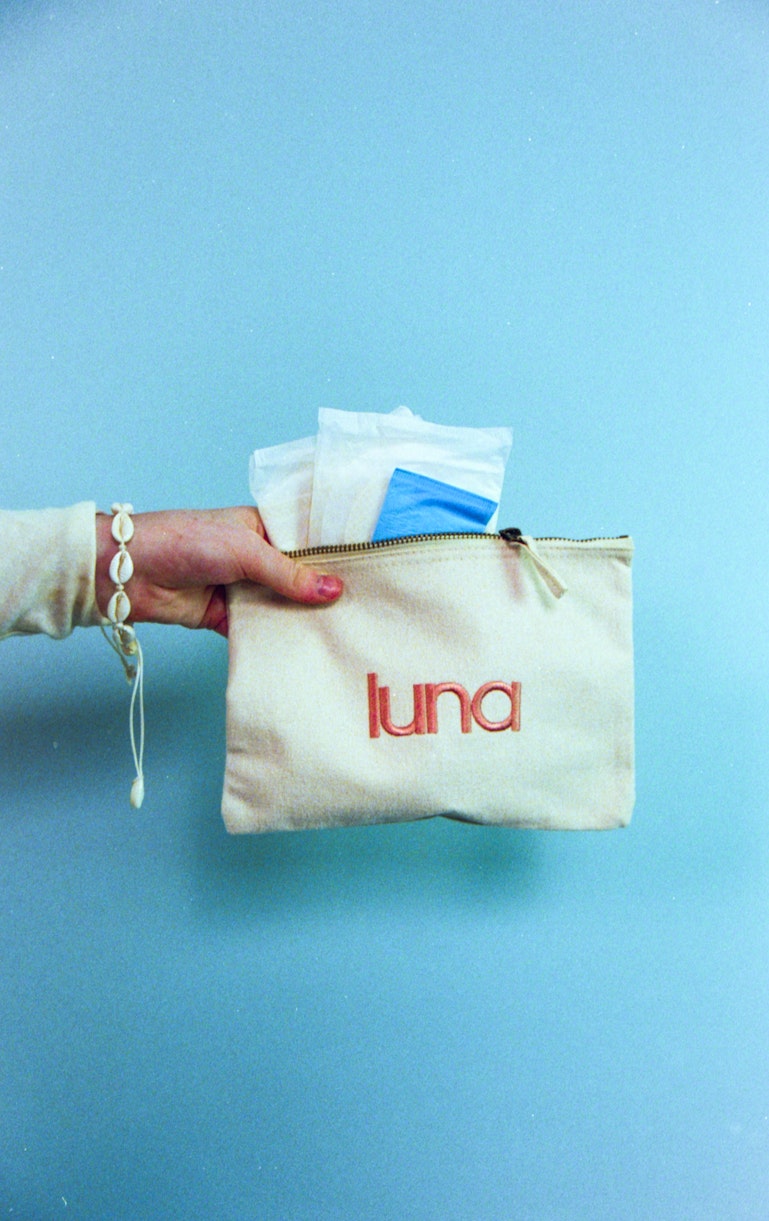
When will my teen's next period be?
Predicting your teen's next menstruation

There’s often a lot of emphasis on preparing for a first period, but we hear less about what happens afterward, as teens begin to settle into their menstrual cycles.
As a result, many teens ask us through our app, luna, about when their next period will arrive – confused about how to find out, and what to do to manage it.
So, if your teen is coming to you with the same question, we want to offer some clarity to help you support them.
The reality is, periods can be irregular at the start
The truth is, it’s impossible to predict exactly when your teen’s next period will arrive, especially in the first couple of years after their cycle starts.
It’s completely normal for periods to be irregular at this stage as the body adjusts to hormonal changes.
Some cycles may be shorter, others longer, and occasionally they may skip a cycle altogether.
While it can be frustrating for your teen to deal with this unpredictability, reassurance goes a long way – let them know that irregular periods are part of the settling-in process and typically become more regular over time (usually within the first two years).
Preparing for irregular periods
So, how can a teen prepare for the unexpected? How can they feel more secure with the possibility they'll get a period when they don't expect it?
Firstly, encouraging your teen to track their periods can still be helpful, even if their cycle isn’t regular yet – luna’s period tracker allows them to log their periods but also their moods, skin, pain and sleep which can also give them signs their period is on the way. And in time, the tracker will offer a more accurate estimate of when their next period might occur based on their average cycle – these predictions become more accurate as periods become more regular.
As for preparing for unexpected periods, it’s a good idea for your teen to carry an period kit with period products like pads, tampons, or period underwear.
Wearing a panty liner in the days leading up to a possible period (at the start they can estimate 28 days after their first period) can provide added peace of mind. Panty liners are lightweight and can catch very light flows. Just remind your teen to change the liner every 4–6 hours for comfort and hygiene.
Signs a period might be coming
Even when a teen's cycle is irregular, they may notice some common signs that their period is on its way which can be very helpful.
These symptoms can appear in the days or week leading up to their period:
- Fatigue: feeling more tired than usual
- Acne: breakouts or oilier skin than usual
- Mood swings: feeling more sensitive or emotionally charged
- Bloating: a slightly rounder stomach or reduced appetite due to bloating
- Cravings: a stronger appetite or sudden desire for specific foods like chocolate
- Breast pain: tender or swollen breasts
Helping your teen recognise these signs (and encouraging them to track them in the luna app) can make them feel more prepared and in control.
How you can support your teen
New periods can be a challenging and frustrating experience for lots of teens, so your support and reassurance can make all the difference. Encourage your teen to track their period and watch for these common signs, as this can help them feel more confident and less anxious about the unpredictability of their cycle, and over time they'll find it becomes much easier to predict and manage their periods.
Finally, why not support your teen with a luna subscription?
Our app, luna, has dedicated advice on this topic which can help them feel more empowered through adolescence.
You can think of luna as a modern, digital approach to wellbeing – it’s cost-effective, verified by doctors and safeguarding experts, and has a direct line into the biggest concerns facing teens today – so it’s actually addressing what they need advice on, when they need it.
If you’ve been looking for an antidote to the misinformation and negativity shared on social media or forums, you can get luna for your teen via our luna premium page for the price of a coffee each month or manage their subscription by downloading luna yourself and signing up as a parent (it's "we are luna" in app stores).
How we created this article:
luna's team of experts comprises GPs, Dermatologists, Safeguarding Leads and Junior Doctors as well as Medical Students with specialised interests in paediatric care, mental health and gynaecology. All articles are created by experts, and reviewed by a member of luna's senior review team.
Sources:
NHS “Periods”
https://www.nhs.uk/conditions/periods/NHS “PMS (premenstrual syndrome)”
https://www.nhs.uk/conditions/pre-menstrual-syndrome/Kids Health “Irregular periods”
https://kidshealth.org/en/teens/irregular-periods.htmlNHS “Irregular periods”
https://www.nhs.uk/conditions/irregular-periods/Find out about trends when your teen does
Sign up to our parent newsletter for emails on the latest teen trends, insights into our luna community and to keep up to date
By signing up, you are agreeing that we can use your email address to market to you. You can unsubscribe from marketing emails at any time by using the link in our emails. For more information, please review our privacy statement.